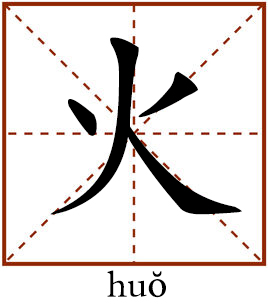Hanshi, Qingming Festivals honor selfless Jie Zitui

Both the Cold Food (Hanshi) Festival and the Qingming Festival originate from ancient custom of renewing fire in spring. As the story of selflessness embodied by Jie Zitui spread, these two festivals gradually became festivals held in his memory.
One or two days before the Qingming Festival, the Hanshi Festival, or Cold Food Festival, falls on the 105th day after the winter solstice. In 2018, the Hanshi Festival falls on April 4. Despite disputes over the relationship between these two festivals, there is no doubt that they are both connected to the story of two historical figures in the Spring and Autumn Period (770-476 BCE)—Jie Zitui and Duke Wen of the Jin Kingdom.
Every year, memorial ceremonies are held in the Mian Mountain at Jiexiu, Shanxi Province. These ceremonies have become an important method of preserving the history and spreading the national ethos of China. Mian Mountain, also known as Jie Mountain, was named after Jie Zitui in memory of his virtues.
Duke Wen (c.672-628 BCE) was one of the Five Greatest Dukes in the Spring and Autumn Period. His name was Ji Chong’er. Before he came to the throne of the Jin Kingdom, he was forced to live in exile for 19 years, having lost a struggle over the throne against his brother. When Chong’er was in exile, Jie Zitui was one of the major adherents who followed him through all his difficulties.
When Chong’er eventually returned to the Jin Kingdom and seized the throne, he rewarded all his loyal followers but Jie. Jie could not care less about this. According the Zuo’s Commentary on the Spring and Autumn Annals, Jie said that as the only son who remained alive, Duke Wen was destined to succeed the throne. Therefore, credit must go to the Heaven. It would be a shame to take credit for work that was done by Heaven. He then chose to leave and live a hermit life on Mian Mountain, together with his mother.
After a while, the duke recalled Jie’s contribution. He sent people to find Jie but failed. Knowing Jie Zitui was somewhere near Mian Mountain, the duke ordered that the mountain be set on fire to force Jie reveal himself. Refusing to be rewarded, Jie, together with his mother, never came out of the fire alive.
Making great contribution to the nation and taking no credit for it, Jie Zitui became a symbol of a noble personality who dedicates himself to a mission which he believes to be right and does not pursue any personal interest or gain. Using no fire and eating cold food on Hanshi Festival is a ritual ceremony in memory of Jie Zitui, because ancient Chinese were deeply touched by Jie’s selflessness.
(edited by CHEN ALONG)
